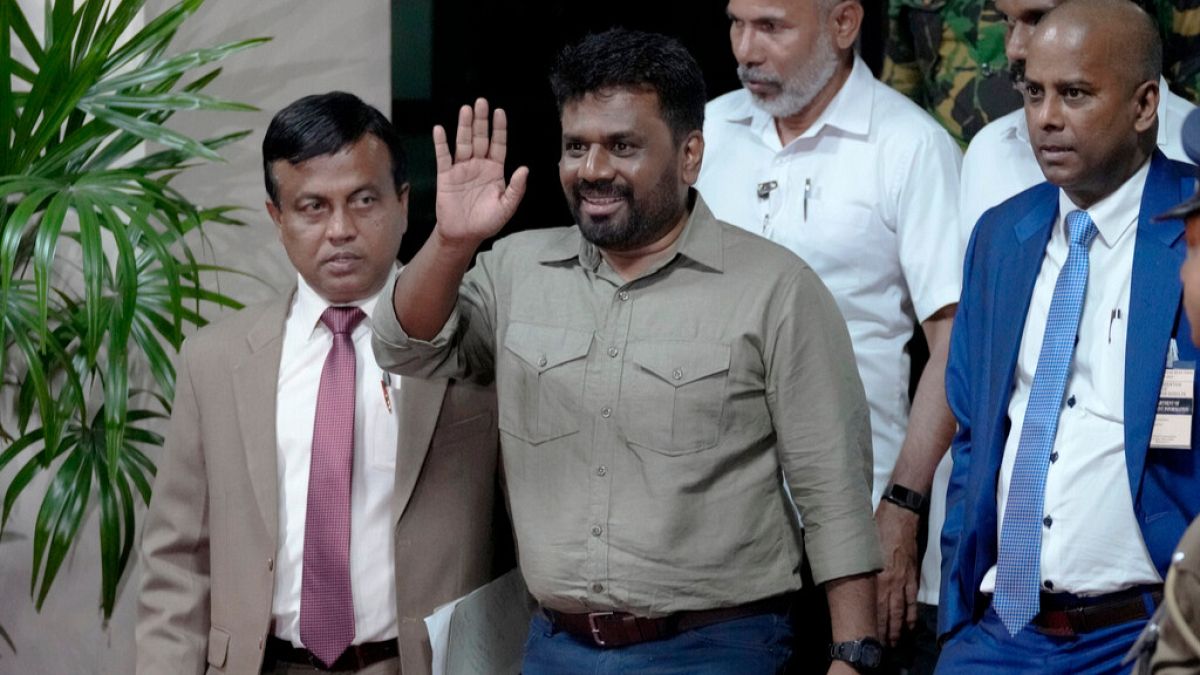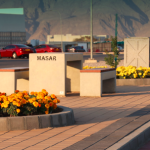Sri Lanka has voted in a new leader, Anura Kumara Dissanayake, in an effort to recover from its worst economic crisis and political upheaval. Dissanayake, a leftist leader, won the election with 5,740,179 votes, defeating opposition leader Sajith Premadasa and 36 other candidates. Indian Prime Minister Narendra Modi congratulated Dissanayake on his win, expressing interest in strengthening cross-country policies. Dissanayake’s coalition is led by the Janatha Vimukthi Peramuna, a Marxist party that has transitioned to democratic politics since the 1990s. The economic crisis in Sri Lanka was a result of excessive borrowing, the impact of the COVID-19 pandemic, and government decisions regarding foreign reserves.
Dissanayake’s win comes after protests and riots rocked Sri Lanka, leading to the removal of the previous president over the economic crisis. The National People’s Power coalition, led by Dissanayake, includes a diverse group of individuals such as academics, civil society movements, artists, lawyers, and students. Dissanayake, who was first elected to parliament in 2000, previously held the role of agriculture and irrigation minister under President Chandrika Kumaratunga. The new president’s election was crucial as Sri Lanka seeks to recover from economic difficulties and political instability, with hopes of implementing cross-country policies to strengthen relationships with neighboring nations.
The 10th president of Sri Lanka, Anura Kumara Dissanayake, is a member of the Janatha Vimukthi Peramuna party, which has a history of Marxist ideology and previous involvement in armed insurrections. The party has transitioned to democratic politics since the mid-1990s and has been largely in opposition, although they have briefly supported previous presidents and been part of government coalitions. Dissanayake’s victory in the recent election reflects a desire for change and reform in the country, as voters rejected the old guard accused of leading Sri Lanka into economic crisis and political unrest.
The economic crisis in Sri Lanka was a result of various factors, including excessive borrowing for projects that did not generate revenue, the impact of the COVID-19 pandemic, and government decisions regarding foreign reserves. The new president, Dissanayake, will face the challenge of navigating the country out of this crisis while also addressing political instability and societal issues. His win was celebrated by Indian Prime Minister Narendra Modi, who expressed interest in working together to strengthen cross-country policies and relationships.
Dissanayake’s coalition, National People’s Power, brings together a diverse group of individuals with the common goal of driving change and progress in Sri Lanka. The coalition includes academics, civil society movements, artists, lawyers, and students, reflecting a broad spectrum of voices and perspectives. As the 10th president of Sri Lanka, Dissanayake will have the opportunity to lead the country through a period of recovery and reform, working towards economic stability, political unity, and social development. His election marks a new era for Sri Lanka, with hopes of building a stronger and more prosperous future for its citizens.










